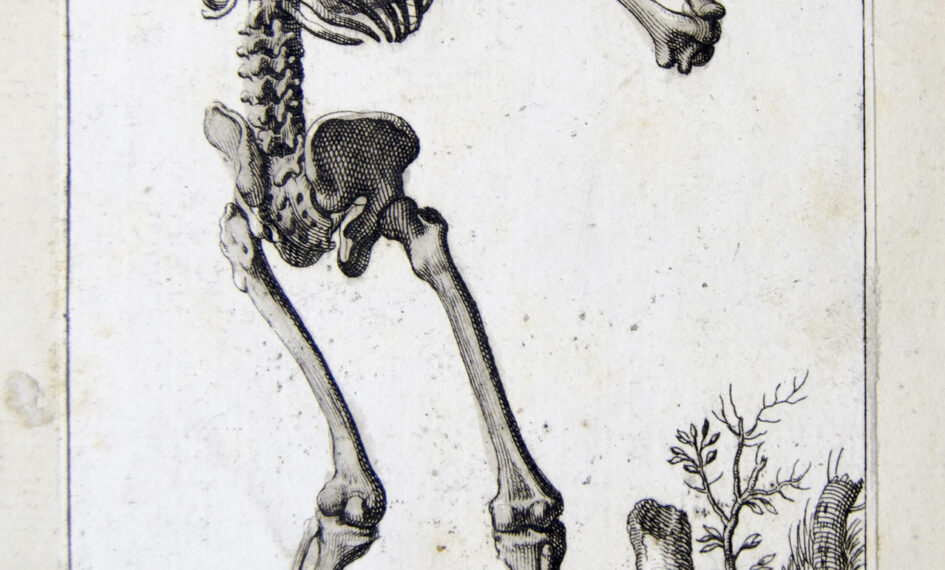- Definition: A skeleton is the internal framework of bones and cartilage in vertebrates (including humans) that supports and protects the body’s organs, provides structure, and enables movement. In invertebrates, the term can refer to various supportive structures, though these are not typically composed of bones.
- Etymology and Origin:
- The word “skeleton” comes from the Greek “skeletos,” which means “dried up” or “desiccated.” The term originally referred to dried bodies or mummies in ancient Greek, and later came to be associated with the bony framework of the body.
- The understanding and study of the skeleton have ancient roots, with early civilizations having various beliefs and knowledge about bones and their functions. However, a more scientific understanding of the skeleton developed much later, particularly during the Renaissance with advances in anatomy and dissection.
- The term “skeleton” in its modern sense, referring specifically to the bone structure, became more commonly used in medical and biological sciences after these advancements in human anatomy.
The concept of the skeleton, originating from a Greek term for dried or withered bodies, reflects the evolution of human understanding of anatomy from ancient times to the present, highlighting the skeleton’s crucial role in both biological function and structural support.




1 comment